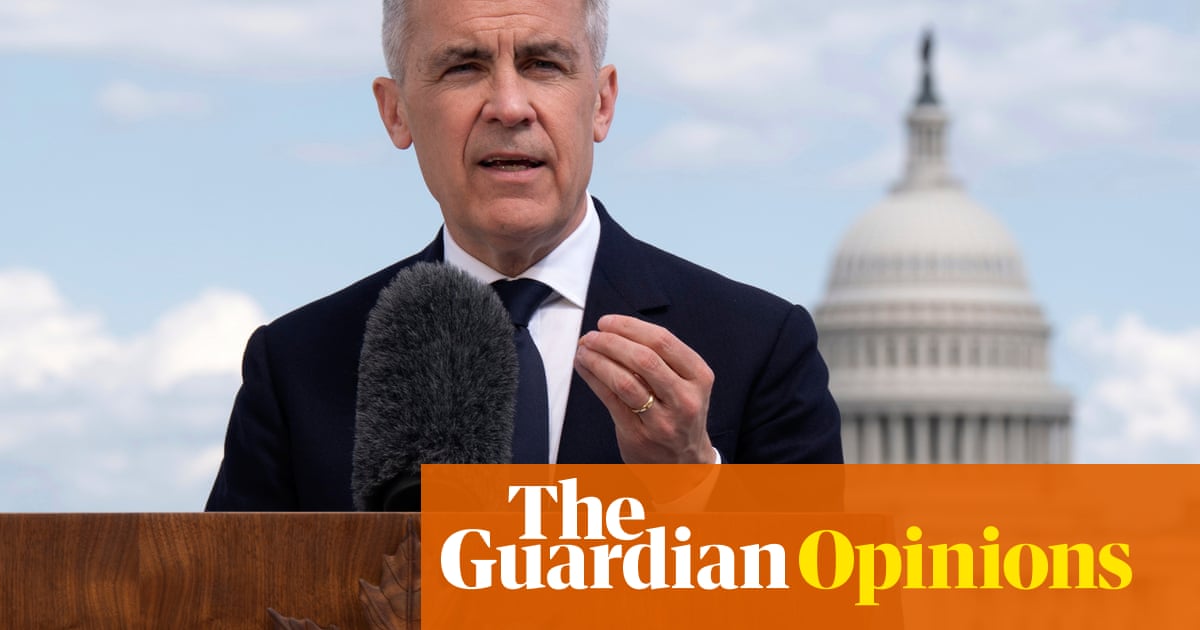Afew days after last month’s Canadian election had delivered a minority victory toMark Carneyand the Liberal party, I got an email from someone I worked with when I lived in Virginia. They asked how I was feeling about the result, a big and complicated question.
Many Canadians I know feel immense relief at what they see as Canada’s rejection of the Conservative leader, Pierre Poilievre’s,Trump-style brand. But underneath it simmers dread about what might be coming down the pipeline.
After all, a good chunk of the country dislikes (and even despises) the Liberal party. There’s the comment I heard about leaving the country if the Liberals get re-elected. The disinformation-laced lament from a small business owner about refugees and “woke” ideology. The friend who insisted Carney, not Poilievre, is more Trump-like. The Conservative stronghold of Alberta is so upset with the result itmight holda referendum on leaving the country. Danielle Smith, Alberta’s far-right premier, saidpeople in her province are “hurt and betrayed” that Canada re-elected the Liberals. Meanwhile, Poilievre has vowed to stay on as Conservative leader, with apending byelectionto secure him a seat in a reliably Tory riding.
It’s still common to see “Fuck Trudeau” stickers, buttons and flags, even in the area around Toronto where I live. It’s a reminder that our former prime minister has become a bogeyman whom the Conservatives blame for everything. I’ve yet to see anything “Fuck Carney” but know it’s only a matter of time. The merchandise isalready for saleon Amazon. “Perfect,”says one reviewer. “Stupid af,” says another.
The starkness of Canada’s polarisation is one of the election’s most significant outcomes. Some people fear we will fully descend into a two-party system, stuck in the kind of gridlock that has plagued the US. Certainly, the left-of-centre New Democratic party (NDP) – and to a lesser extent the separatistBloc Québécoisparty – fell victim to progressive voters’ fears of Donald Trump and Poilievre. The NDP won so few parliamentary seats that it lost official party status. But more noteworthy, and concerning, is theshift of some NDP supportersto the Conservatives, part of a broader trend of rightwing parties that had spent decades bashing unions refashioning themselves as pro-worker. (Or, in Poilievre’s parlance: “Boots, not suits!”)
Canada has by no means escaped the rise of far-right politics plaguing the US, the UK and parts of Europe. The movement has grown and ranks highly withyoung voters,especially men. The Poilievre-Conservative victory we all thought was imminent a few months ago might be delayed, not thwarted. As one CBC commentatornoted on election night, Poilievre’s concession speech sounded a lot like the start of his next campaign.
Existential issues plague this country: increasing impacts from the climate crisis, with deep divisions over the future of Canadian oil and gas; social media platforms saturated with misinformation, aconsequenceof Meta blocking news on its Canadian apps; chronic violations ofIndigenous sovereignty; million-dollar “starter homes”; corporate monopolies that have seized multiple industries; and more and more Canadiansrelying on food banks.
So to answer my former colleague’s question: I feel like Canada’s driving on a dangerous highway at a dizzying speed. We swerved to avoid what would have been a deadly accident, but we’re still on that highway – in a clunky gas-guzzling SUV, I imagine, with outdated machinery.
And then, of course, there’s Trump, questioning Canadian sovereignty and saying in hismeeting with Carneylast week that there’s nothing Carney can say to get him to drop the tariffs that are alreadyhurting Canadians.
“Why not?” a journalist asked.
Trump shrugged. “Just the way it is.”
Just the way it is– a simple but slippery phrase that describes the impossible situation Canada and our new prime minister find ourselves in. A situation that has been, to some extent, decades in the making. For my entire life, Canada has edged closer to the US, assuming it would always be friendly. I think of my dad, who moved to Canada from the UK when he was 17, saying that if he knew Canada would become so Americanised, he might have stayed in Britain.
Deep down, I think most Canadians understand the extent of the damage Trump can inflict, if he so chooses. But it’s something few people care to admit. I understand why. We are at the whim of the US’s authoritarian president. Poilievre can tell Trump to “knock it off” and Carney canremind himthere’s some real estate that’s not for sale. But more and more, it seems like there’s no line Trump won’t cross, if he wants to.
In 1969, Canada’s prime minister, Pierre Trudeau, father to the much-maligned Justin,comparedliving next to the US to “sleeping with an elephant”. “No matter how friendly and even-tempered is the beast, if I can call it that, one is affected by every twitch and grunt,” Trudeau said.
Every twitch and grunt. Every intrusion on to what you thought was your side of the bed. Every yank of the duvet and gulp from your water cup.
Just the way it is. Just the way it has become.
Carney has perhaps the toughest job of any Canadian prime minister in recent memory. He must renegotiate Canada’s relationship with the US as it descends into fascism. Behind him is a divided country with divided interests.
The election’s over, but we are in for a bumpy ride.
Melissa Jean Gismondi is an award-winning Canada-based writer and audio producer
